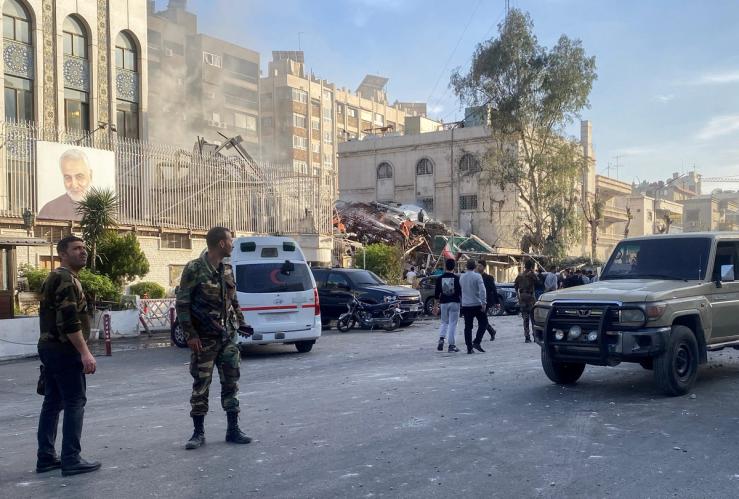The News
Iran’s foreign minister said Monday that “the coming days will be hard for Israel,” heightening fears that Tehran will carry out reprisals following a strike on an Iranian consulate in Syria last week.
Hossein Amir-Abdollahian’s warning came as Israel and the U.S. raced to prepare for an expected Iranian response after suspected Israeli warplanes bombed Iran’s embassy in Damascus, flattening a consulate annex and killing two high-ranking military commanders.
U.S. troops in the Middle East have been placed on high alert, while Israel has recalled reservists to its air defense units, expanded GPS jamming to thwart potential drone attacks, and suspended 28 diplomatic missions across the world.
Israel has killed at least 18 members of the Quds force — Iran’s external military and intelligence service — in recent months, according to Iranian media. But the strike in Damascus is being seen as more escalatory for targeting an embassy building, which has protection under international law.
Israel has denied being behind the attack, but Israeli officials have said the building operated as a military base and was therefore a legitimate target.
SIGNALS
Iran could respond with strikes in Israel, US warns
U.S. officials have warned that Iran may be planning to hit targets inside Israel, NBC News reported. The officials told the outlet that a possible retaliation could be conducted using drone swarms or land cruise-missiles, and may target military or intelligence targets inside Israel or a regional diplomatic outpost. U.S. officials are also concerned that Iran could target U.S. bases in the region. “I think Iran is going to play multiple cards simultaneously,” Sanam Vakil of the UK think tank Chatham House told CNN, with possible tactics including cyberattacks, continued attacks via regional proxies, and a diplomatic campaign against Israel.
Israel playing a ‘risky game’ in Syria
Israel has ramped up attacks on Iran-linked targets in Syria because it “thinks it has a rare opportunity to damage Iran’s proxies in the region”, but it is playing a “risky game,” The Economist wrote. The attack on the Damascus consulate crossed a new line by targeting a diplomatic compound and killing the highest-ranking Iranian official since the U.S. assassination of General Qasem Soleimani in 2020, one Middle East expert wrote in Foreign Affairs.
While many in Israel believe Tehran is a “paper tiger” that will avoid retaliation for fear of a broader war, a competing argument says the threat to Israel and the U.S. has increased since Soleimani’s killing, Dalia Dassa Kaye wrote. Domestic pressure is rising in Tehran and hardliners have already started clamoring for a “fire-and-brimstone response,” raising the risk of retaliation, The Economist said.



